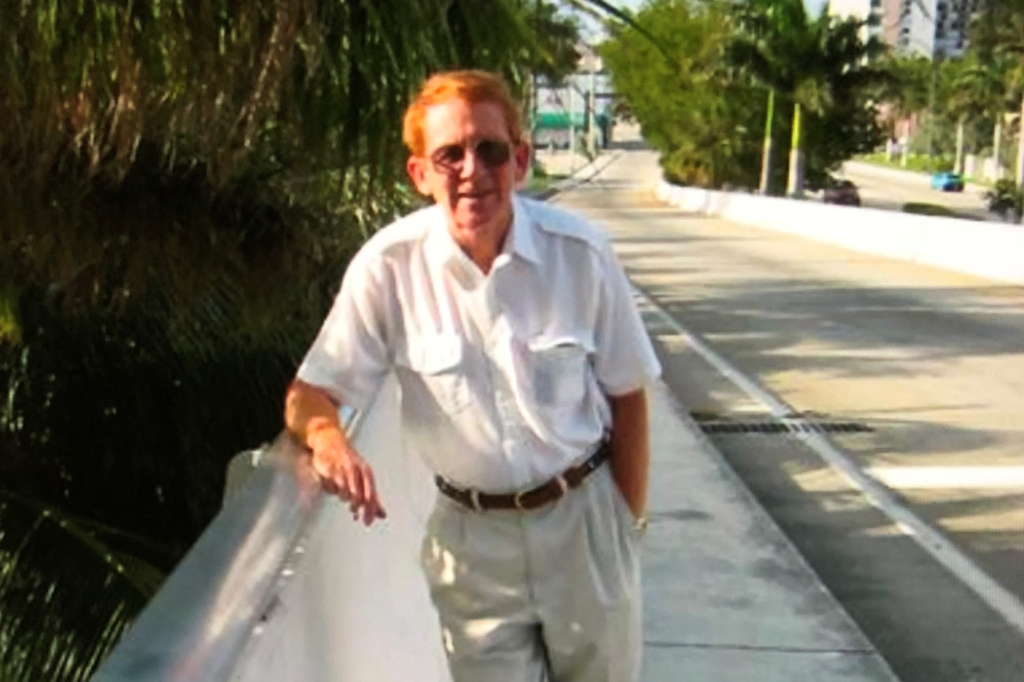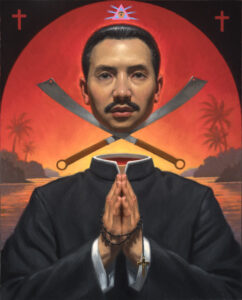He lived in a cottage in a quiet part of town. He was the Robert Frost of our time. The world is scarcely yet “woke” to the great spirit it lost when Timothy Murphy passed from this mortal plane one morning in June.
More than a decade has elapsed since we met in the flesh, on a June day in Pennsylvania in 2006. I still see Tim vividly in my mind: formally, darkly dressed in deep green, and standing stock still, slightly tipped, poised with his left foot flat, his right leg extended straight to the side, his right foot flexed and slightly aslant. He stared down towards me – as though in a stupor – through a long passage in a building on the campus of West Chester University.
He posed there long moments, motionless, only tilting his head after a time, as though bemused by the sight of me, then lifted his hands and joined them at angles to form a box with his fingers “framing” me, and grinning. It is a searing, bright vision of our first meeting which will likely remain with me until I die, just as it remained with Tim until the end.
On returning home, I began sending Christmas cards to Tim and his partner Alan Sullivan: birthday remembrances and wishes, photos of me and my family, personal things. This both totally bemused and gratified Tim. He also found it baffling. But he claimed to have felt an instant rapport with me; he poked fun at himself and his consternation in an early poem for me, containing the hilarious, unforgettable, sensible line: “and this is pretty odd, because I’m gay.” We had become sure, pure friends: nothing short of a miracle, really.
Which is good, because our introduction by written correspondence, three years before our physical introduction, had been disastrous, nearly fatal.
My first poetry collection had been accepted for publication at the turn of the 21st century, and I sent it cold to Tim, asking if he might pen a blurb for me. I was completely unprepared for the response. Tim was savagely drunk at the time, as he later explained. He read through the manuscript. Then he fired back a response, annihilating me; in essence, delivering the blistering news that I had no significant poetic talent whatsoever. That I had clearly been “awarded” publication, because my publisher had few-to-no other manuscripts to consider, and that my one redeeming virtue was my ability to see through to the logical end of a situation.
Not only did he refuse me the blurb, but he bluntly warned me not to allow my collection even to be published. His tone was furious – so intense that I still feel its effect. I did not retaliate, but thanked him, and quietly died.
I do not recall now, how we survived this, but clearly, we did, and by the time my book came out, he was actively promoting it in public, encouraging, supporting, and praising me. We were on speaking terms, and in 2009, Tim interviewed me for Able Muse. His conscience had never let him forget what he had done to me. Tim had always repeatedly brought this up in our private conversations, to ask for my forgiveness. He was ingenious, after all, with the capacity to recognize and rue, ex post facto, the damage he had exacted. I had always repeatedly told him to let it go. But in the interview, he again requested that I forgive him in a very public forum, which I did.
From the outset, I had most admired Tim’s poetically rugged directness. We shared a love of animals and birds, cowboys and Indians, the bow, the trail, truth, the earth, the Ineffable and William Shakespeare. This is a poem from Tim’s unpublished collection, “Creature of the Wild,” in which he likens himself to Shakespeare’s bird:
Ecce Homo
–January 30, 2016
While we periodically disagreed, Timothy and I never quarrelled. But once, in a reaction of pique and wounded pride at his pointed rejection of a Pocahontas poem, I called him, “White Man.” Without hesitation, Tim breathed, “From you, I will take that.” Then he added, “I’ve heard worse from the Sioux.”
Tim exuded rugged humor, and a confidence in his vantage point. Take Tim’s admission in his poem Distance, from his final manuscript, that he delights in those of us with “distance in their stare,” characterizing himself as a man who “like an old trekker greets a grizzly bear.”
But here is one dichotomy which marked Timothy Murphy, both the man and the poet: his vulnerability. While he could humorously and even arrogantly “preside” over a scene, his humility was proportionate in that he could fret about his reader immediately upon writing a poem. “What will Jenny think, now that I have gone all tribal on her?” he once asked me. Here is one of those poems, a moving, succinct, sublime supplication:
Norse Dream
Place was paramount to Tim. He wove himself into his local soil, faithful to the Great Plains so he understood my similar loyalty to the Bayou, come ‘hell or high water.’ When hurricanes devastated our Gulf Coast, Tim rode out those storms with me: How was I? Were the high winds wrecking my roof? What about flooding? Especially about flooding.
Floodwaters preoccupied Tim, and he would tell me stories of his own, to amuse or distract me from the chaos and heartbreak, which involved them. Some form of the word “flood” appears no fewer than 28 times, in his multiple as-yet-unpublished collections of new poems from 2009-2016. The following poem shows his fascination with floods and his adoration of the American Indian’s arrow:
Three Arrows
I came to observe a special devotion of lighting candles for Tim inside the Saint Louis Cathedral, in the Vieux Carré of the New Orleans French Quarter, a place he had visited and loved. He wrote numerous poems for me, and for others. Here is a favorite, about a dream involving two notable Louisiana poets and myself:
Breakfast at Brennan’s
Towards the end, Tim was dreaming poetry. When he woke up and shared Breakfast at Brennan’s with me the next morning, I had to break the news that the world-famous Brennan’s had closed its doors. He was crushed, as it had been not only a beloved spot of his but a special favorite of his mother whom Tim cherished.
I sent him a bananas Foster coffee sold by the regional P.J.’s Coffee House. Tim relished Louisiana coffee, with its pungent blend of chicory. One morning during his last weeks when I phoned too early, he tried valiantly to talk, but soon entreated, “Darlin’, can I call you back? I am just now waking up and having my Louisiana brew.”
Tim was possessed of a keen social conscience. He and I would discuss such topics as the Bureau of Indian Affairs and reservation conditions. We traded tribal political news. He passed along tales of the Sioux, and I, news from my family, and the Cherokee Nation. Not only did American Indian language, culture and history enthral him, but the living conditions, plight and treatment of the Native American, both past and present, angered him.
He griped to me once, “Our third world reservations are the great shame of the Dakotas, and we can’t do anything about it; BIA rules supreme on these ‘sovereign nations.’ When we built that giant farm on the Rosebud our deadly enemy was the head of BIA, first Native American Director, a Pawnee who hated, hated the Sioux. Forget fracking, the best business in the Dakotas is a liquor store 100 yards from a reservation line. Sadly.”
In 2010, one of my children was diagnosed with epilepsy. That was a time of spiritual agony for me. Tim was among the very few in whom I confided.
Tim immediately became my strongest support, my firmest rock, in the entire literary community— every few days sending me a message: “How’s J—?” Tim would try to make me laugh, adding words of empathy and comfort, to pass along to my young, disabled one, about his own devastating struggle with seizures, due to alcoholic addiction. Tim was humbling himself, to raise another above. When Tim sent me an inscribed copy of his book, “Hunter’s Log” in 2011, he inscribed it, “To Darlin Jennie, with prayers for your boy. Uncle Tim.” By “uncle,” he meant not uncle to me, but to my son.
Tim wrote several poems about those seizures of his own, those death-defying throes and strokes of his against a formidable enemy, which he bade me convey to other, less experienced fellow beings hoping to be an inspiration. Here is one from his “Last Poems” manuscript:
De profundis clamavi ad te Domine
There is a wonder here: Even through his nightmare of suffering, Tim continued to compose poetry, and not only that but poetry as an art form of working penance.
Tim was a Christian for a mere thirteen years previous to his death. I really never knew him as anything other than a Catholic, and an earnest Catholic, at that, constantly speaking to me about what he was doing in his works.
Though in the beginning, he openly confessed to having little faith in it, as he matured in the Faith, Tim became particularly fond of the plenary indulgence, not only earning and writing about it in his poetry, but publicly prodding all Catholics to confess, attend Vigil Mass, and visit family graves at the time of All Saints’ Day. Tim generally sought indulgences for the dead, very rarely for himself:
Four Dispensations
Tim was the most dynamic writer I have ever known, laboring with a fervor which I have not ever witnessed: spontaneous, erratic, all unlikely hours. He himself described the fever-pitch, prolific pace of his last year as insane. “It’s insane!” he exclaimed to me over the phone last year. I would be awake at three a.m., and send him an email message which he would answer within minutes, “You pulling an all-nighter, Darlin’?” In return, I might tease him with something like, “Yes. Praying for you.”
For if there was one thing which bound us inextricably together at even the most improbable, impractical moments, it was our faith in the Creator, our trust in the revealed, triune God, and especially that revelation as expressed through the Person of the Holy Spirit, the Great Spirit of the living Maker.
The miracle at Pentecost dazzled, captivated, and inspired Tim. The very word, “Pentecost,” appears fifteen times in his “Last Poems” alone, and appears as many times, altogether, in his five unpublished manuscripts of new poems from 2009-2016. “Pentecost” appears a dozen times in his “Devotions,” one instance of which I cite here:
Pentecostal
Towards the end, Tim talked often of King David. This is the Ode to King David which Tim wrote for me, from his unpublished collection, Songs and Sonnets:
for Jennifer Reeser
One of Tim’s fervent last wishes was that I should write poems for Our Lady of Guadalupe. Seven years ago, he began directing all his prayers to her, for Irish reasons. He hesitated to write for her, however, pressing me with regularity and passion to do it, in the strong belief that I, as an indigenous mother, would bring much greater authority than he could, to the blessed event. Though he did send me the following poem, very pleased with himself for the bottle/Nahuatl rhyme:
Our Lady of Guadalupe
Tim regarded himself as an evangelist and dubbed me a lyric partner in the rescue of the human soul. He was fond of saying to me, “You and I are the evangels. Your faith and mine admit no daylight between them. There is no daylight between us.” It was his poetic way to point to purity of spirit. These were not only the words he chose, when inscribing my copy of his book Devotions, but also some of the very last words he ever spoke to me, before he walked on to his divine union with the Author of Creation.
Fittingly, the very last words he ever spoke to me audibly before he left, were in French: “Au revoir, ma chérie.” To me he said not “goodbye,” but “Until I see you again, my dear.”
He chose those words deliberately. He knew exactly what they meant. He knew precisely what he was doing.
Jennifer Reeser is Timothy Murphy’s literary executor. Her poems, literary criticism, and translations of French, Russian, Cherokee, and various Native American languages, have been anthologized in Random House/London’s Everyman’s Library series, and have appeared in such venues as POETRY, The Hudson Review, Rattle, First Things, and National Review. Indigenous, her sixth poetry collection, is forthcoming from Able Muse Press.




